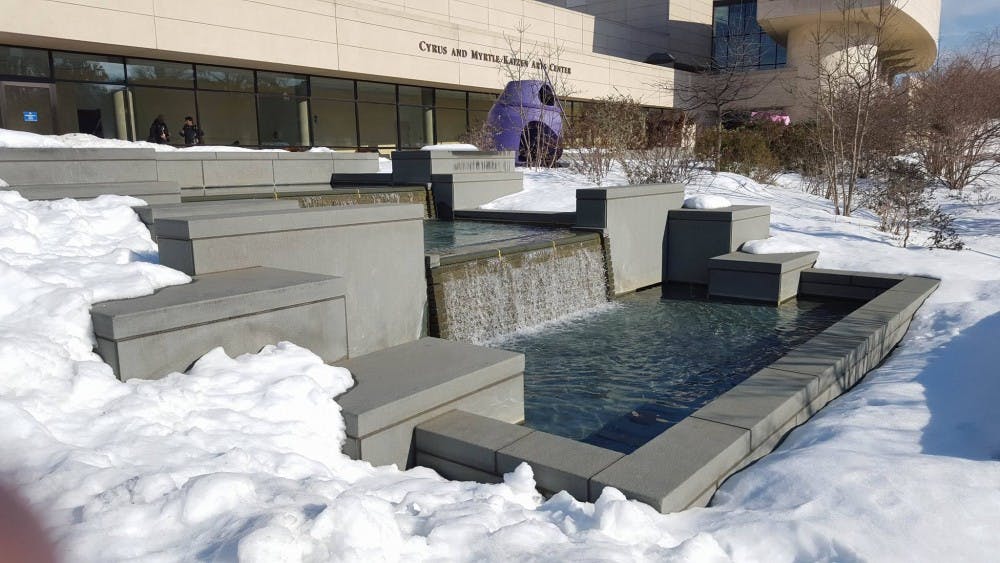The University is currently in the process of reviewing a proposal for redesigning the Bachelors of Arts in Music degree. The goal is to put in place a flexible model that will provide students with greater variety of courses to choose from, while offering them more individualized attention through the help of faculty mentors, according to the proposal.
The new degree program will make it easier for students who have diverse interests and want to pursue other fields of study along with music to do so, according to Nancy Snider, director of the Music program.
“Because we have so many double-majors at AU generally, and we have a lot percentage wise in the music program, our goal is to blend the interests of the student, to make them complement each other so that we are teaching to the whole student, and not forcing some kind of negative split within the student,” Snider said. “We want the areas of passion and interest to be fully integrated.”
New upper-level seminar classes have been added to the revised curriculum, and for students just entering the music program, an Introductory Colloquium has been created to expose them to all that the program can offer, Snider said.
A draft of the proposal was completed in November and subsequently sent to the Educational Policy Committee within the College of Arts and Sciences for review, which resulted in minor changes, according to Daniel Abraham, the chair of the Department of Performing Arts.
The proposal has since gone through the Office of the Registrar, and its feedback has been incorporated into the new plan which was then opened to the public for review, Abraham said. Student input has also been taken into account through exit interviews that students give before graduating from the music program.
The proposal still needs to pass through additional levels of administration including the Faculty Senate, but Abraham said he is hopeful that the changes will be finalized by the end of the spring semester and that the new curriculum will be in place for the fall 2016 semester.
“This program does away with all the tracks,” Abraham said.“There are no more tracks. Areas of concentration will be developed between the individual student and a faculty mentor.”
The faculty mentor will be assigned based on a match between the student's interests and the faculty member’s area of specialization by the time the student is a junior, according to Abraham. Ultimately, Abraham said AU’s Music program stands out from other schools because the program gives time for students to grow and develop and provides them with opportunities they need to succeed on an individual basis, which he said a big state school or a major conservatory cannot do.
Students need more flexibility since their interests often may not fit into a specific track, which is missing from the current program in place, Abraham said.
Snider believes that the current system has on the whole served students well over the past decade, with the University being an accredited institutional member of the National Association of Schools of Music. The proposal is simply a reflection of the increasing interconnectedness of different fields in education, according to Snider.
“We thought a new way to truly celebrate what it means to be a liberal arts music program within a liberal arts environment would be to have more choice at the highest levels of undergraduate music study, in these seminar areas of history, of theory and analysis, and of performance,” Snider said.
Since the core of the program remains the same, current students enrolled in the Music program are not expected to have any issues adjusting to the new system, but they do have to make a choice about whether or not they want to follow the new degree requirements or keep going on their original tracks. The new upper-level seminar courses will not be implemented until fall 2017 to allow for a transition period, Abraham said.
Ariel Michaelson, a sophomore pursuing a BA in Music with a focus in vocal performance, has so far been satisfied with the current program, especially with the faculty, but having more choices and following a less structured plan to fulfill her degree requirements would be helpful, she said.
“As a vocalist, since I’m taking a lot of the classes with instrumentalists, it can be geared more towards instrumental music, which is still important to know, but it would be nice to have the flexibility to be learning more about vocal music and history,” Michaelson said.
Michaelson is most excited about the faculty mentor aspect of the new program. In the field of music, having an experienced artist to look up to for constant support can make a huge difference, she said.
“Being a musician is a lot about connections and knowing people, so then to have somebody to work closely with who has already established that and knows what it’s like to go through the process would be really helpful,” Michaelson said.
Abraham sees the redesigned degree to be one that will be beneficial for both faculty and students, and take the teaching and learning to a more advanced level.
“It just gives us a better pallet of possibilities - for the faculty in terms of teaching - to respond to what the students’ needs are at any given time, and I think it gives the students the ability to, with a mentor, shape the pallet of courses they take in order to really allow their trajectory to take off,” Abraham said.





